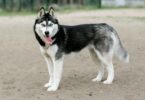What if everything you knew about Yorkshire Terriers only scratched the surface? While these tiny companions are famous for their silky coats, there’s a rare variation that turns heads—and myths—upside down.
Meet the striking Yorkshire Terrier with a jet-black coat. Unlike traditional Yorkies, this unique color variation combines elegance with the breed’s signature charm. Their rarity makes them a conversation starter, but their loving temperament matches their cousins perfectly.
This guide dives into what makes these dogs special. You’ll learn how their care differs from standard Yorkies, including coat maintenance tips tailored to their dark fur. We’ll also explore common health considerations and training strategies that respect their spirited personality.
Backed by expert insights, this article prepares you for every step of ownership. From grooming routines to nutritional needs, we’ve compiled science-backed advice to help your pup thrive. Whether you’re a seasoned pet parent or new to the breed, you’ll find actionable guidance here.
Ready to unlock the secrets of raising a happy, healthy companion? Let’s begin your journey with confidence.
Exploring the Unique Characteristics of Black Yorkies
Among Yorkshire Terriers, a rare gem stands out with its striking appearance. While most display the classic blue and tan pattern, some showcase an unusual solid coat that captures attention. This uniqueness isn’t just about looks—it’s rooted in genetics and careful breeding practices.
Distinct Appearance and Rare Coat Color
The hallmark of these dogs is their rich, jet-black fur. Unlike traditional Yorkies with blended shades, this variation often maintains its dark hue from puppyhood. Though some develop subtle highlights like black-tan patches over time, the primary coat remains deeply pigmented.
Breed standards typically favor blue and tan coats, making the solid color exceptionally uncommon. Responsible breeders prioritize health over color trends, as recessive genes can influence this trait. The silky texture matches standard Yorkies, requiring similar grooming to prevent matting.
Understanding Temperament and Personality
Beyond their looks, these companions share the breed’s lively spirit. They thrive on human interaction and excel in agility training. Their compact size belies a bold personality—expect playful energy balanced with loyal affection.
Owners should note that coat changes may occur during the first two years. Regular brushing and vet checkups help maintain their distinctive appearance while supporting overall wellbeing.
Health, Grooming, and Nutritional Insights for Your Black Yorkie
Caring for these unique companions involves understanding their specific needs. While they share many traits with standard Yorkshire Terriers, their distinctive coat and genetic factors demand tailored care. Let’s explore essential practices to keep them thriving.
Common Health Concerns and Preventative Care
These small dogs face particular vulnerabilities. Patellar luxation affects many toy breeds, causing kneecap slippage during activity. Regular vet checks help catch this early. Tracheal collapse is another risk—using harnesses instead of collars reduces throat pressure.
Dental issues rank high due to crowded teeth. Daily brushing with pet-safe toothpaste prevents plaque buildup. Annual bloodwork helps detect metabolic disorders common in smaller breeds.
Grooming Techniques for a Shiny Dark Coat
Their silky fur needs daily brushing with a slicker brush. This prevents mats and distributes natural oils for shine. Bathing every 3-4 weeks using color-enhancing shampoo maintains depth in darker coats.
Trim nails monthly to avoid overgrowth affecting posture. Clean ears weekly with vet-approved solutions to prevent infections. Puppies benefit from early grooming sessions to build comfort.
Balanced Diet and Nutritional Guidelines
High-quality kibble with 25-30% protein supports muscle health. Avoid fillers like corn that cause allergies. Puppies need 3-4 small meals daily for steady energy.
Measure portions to prevent obesity—a common issue in less active adults. Supplements like omega-3s boost coat health. Always provide fresh water, especially after playtime.
Training, Socialization, and Daily Exercise for a Happy Pet
Raising a well-adjusted companion starts with intentional guidance. For rare-coated Yorkshire Terriers, early training builds confidence and curbs stubborn tendencies. Their intelligence thrives on routines that blend structure with play.
Effective Training Strategies for Behavioral Success
Positive reinforcement works best. Reward desired actions like sitting calmly with treats or praise. Keep sessions under 10 minutes to match short attention spans. Consistency matters—use the same commands for behaviors like “stay” or “leave it.”
Reputable breeders often begin socialization before adoption. Ask about exposure to sounds, surfaces, and gentle handling. A pup’s parents influence temperament, so meet them if possible. This helps predict energy levels and responsiveness.
Socialization and Playtime Essentials
Introduce new people and pets gradually. Start at home, then progress to parks. Interactive games like fetch with soft toys channel their spunk constructively. Puzzle feeders engage their problem-solving skills during meals.
Daily walks should total 20-30 minutes, split into shorter outings. Avoid overexertion—these small dogs excel at indoor agility courses too. Pair training with play to keep lessons enjoyable and effective.
Final Reflections on Caring for Your Black Yorkie
Owning a rare-coated companion brings both joy and unique responsibilities. Their striking color variation makes them stand out within breed standards, requiring attention to subtle care differences. These dogs often develop tan or gold highlights as they age, adding to their charm.
Consistent routines prove vital throughout their life stages. From puppyhood to their senior years old, tailored grooming and health monitoring help address needs they’re prone certain to face. Their coat may shift tones over time—some develop a black blue sheen—highlighting the importance of adaptable care strategies.
Genetics play a role too. Traits inherited from one parent might influence coat texture or marking patterns. This within breed diversity means no two pets have identical requirements. Regular vet visits and breed-specific nutrition become non-negotiables.
Prospective owners should embrace these nuances as part of the journey. While their care may demand extra vigilance, the reward is a thriving companion whose loyalty matches their distinctive looks. With informed dedication, you’ll nurture a bond that grows richer than even the deepest tan gold accents in their fur.
FAQ
Are all-black Yorkshire Terriers recognized by breed standards?
The American Kennel Club (AKC) only accepts traditional Yorkshire Terrier colors like blue-and-tan or black-and-gold. Solid-coated variations, including those with dark fur, aren’t eligible for conformation shows but remain cherished companions.
Do darker-coated Yorkies have different health risks than standard ones?
While tracheal collapse and dental issues affect many small breeds, coat color doesn’t influence these conditions. Prioritize routine vet visits and breed-appropriate screenings regardless of fur shade.
How often should I groom a Yorkie with a deep-toned coat?
Weekly brushing prevents matting, while monthly baths with pH-balanced shampoo maintain shine. Use a leave-in conditioner to enhance their natural luster and trim facial hair regularly for clear vision.










Leave a Comment